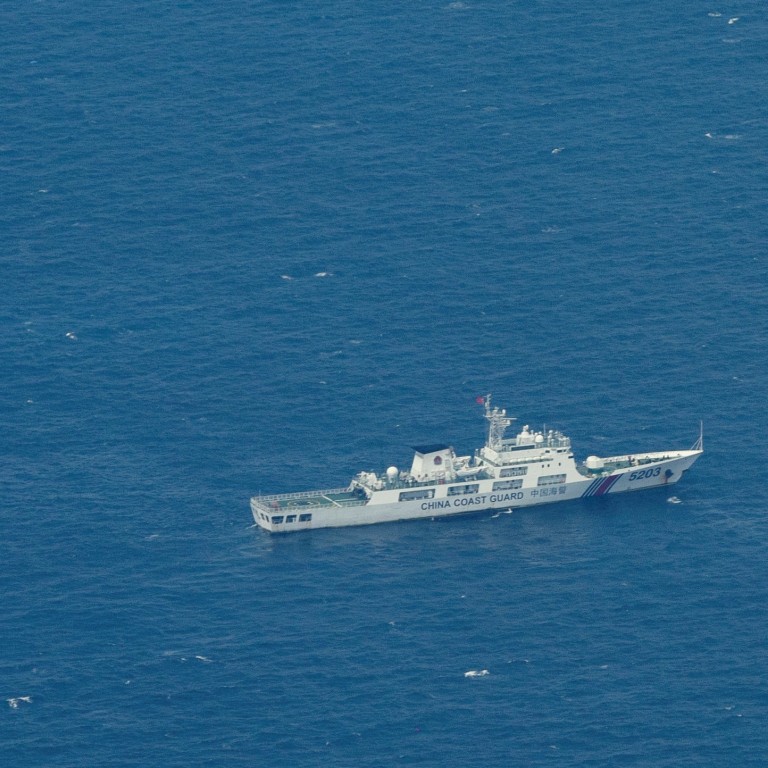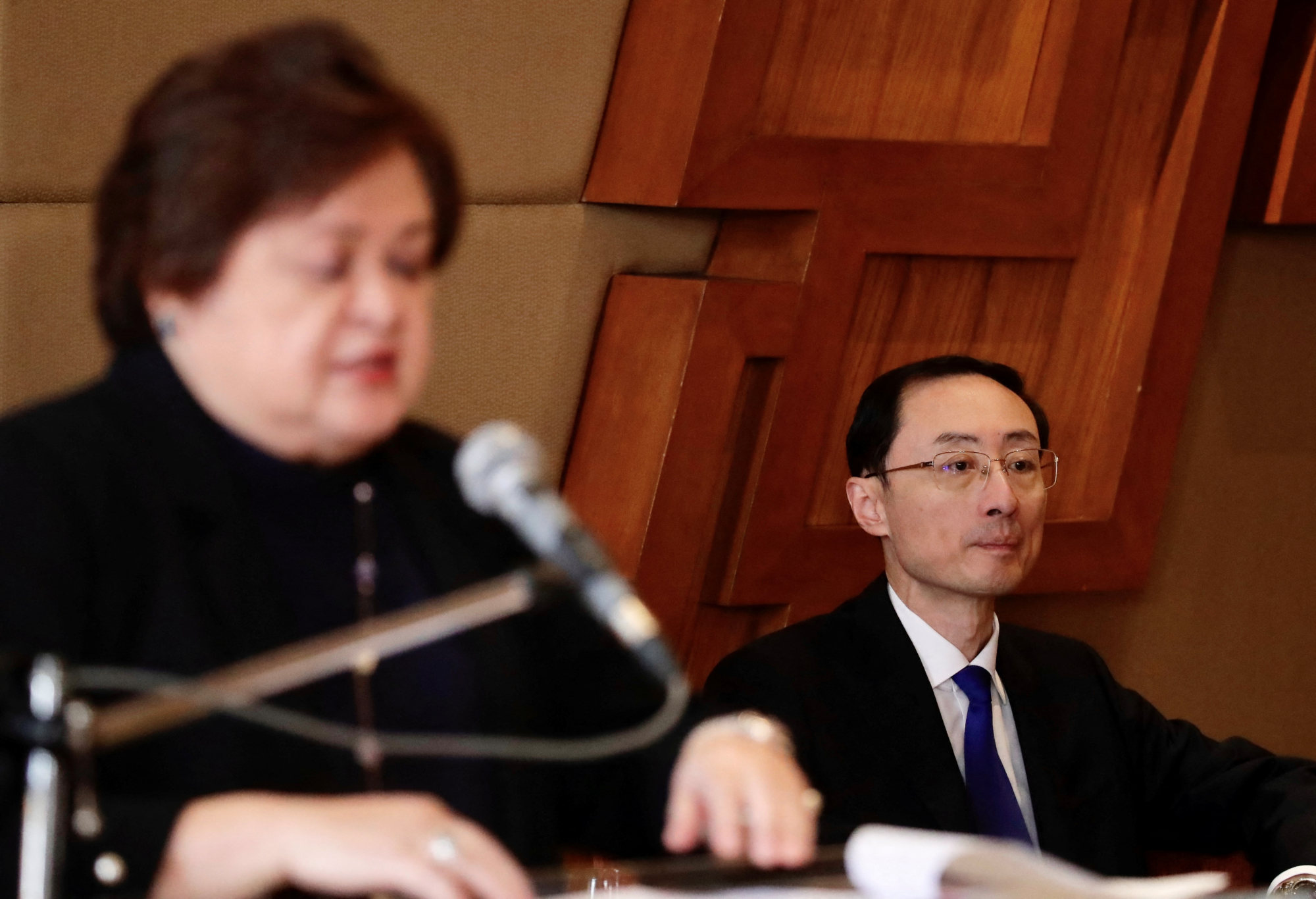
China and Philippines try not to let South China Sea dispute overshadow relationship
- The two sides meet for talks in Manila against a backdrop of rising tensions in the disputed waters
- China is also reported to have expressed its opposition to a plan to give the US access to more Philippine military bases
Sun’s visit heralded the first face-to-face talks between the two sides since July 2019 and on Thursday he met Philippine Foreign Minister Enrique Manalo and told him that it was in both countries’ interests to have a stable relationship.
“The current international and regional situation is undergoing a profound and complex evolution,” Sun said, adding that the two sides should “deepen political mutual trust, focus on pragmatic cooperation, continue to put the South China Sea issue in the proper place in bilateral relations”.
In a separate meeting with Philippine foreign undersecretary Theresa Lazaro, the two sides reaffirmed the importance of managing differences through dialogue “to maintain the main theme and general direction of friendly relations”, according to the Chinese foreign ministry.
Philippines’ Marcos defends US military presence, which China opposes
The two sides agreed it was vital to “maintain strategic autonomy and close solidarity and collaboration” and to “focus on cooperation and work together to build an economic growth centre for China and Asean [the Association of Southeast Asian Nations]”.
One round of talks focused on the South China Sea, and were held under a consultation mechanism set up to manage the dispute in 2017.
Ahead of the talks, Lazaro said: “Both our countries’ leaders agreed that maritime issues should be addressed through diplomacy and dialogue and never through coercion and intimidation.”

China’s claims to most of the South China Sea are contested by Southeast Asian countries such as Malaysia, the Philippines, Vietnam, Brunei and Indonesia.
The latest incident between China and the Philippines has cast a shadow over relations, which appeared to be on an upwards trajectory following Marcos’s visit to Beijing in January, where he met his Chinese counterpart Xi Jinping and signed 14 deals covering everything from trade to infrastructure and maritime security, as well as agreeing an investment plan worth around US$23 billion.
Manila, US eye joint South China Sea patrols to counter Beijing’s ‘aggression’
Citing an anonymous Philippine official involved in the talks, the report said Manila responded that the enhanced US military presence was in the country’s national interest and would boost its capability to respond to natural disasters.
The Chinese foreign ministry said that during this week’s talks the two sides had pledged to step up efforts to boost cooperation in agriculture, infrastructure, energy and people-to-people exchanges.
According to the Philippine statement, Lazaro and Sun also “exchanged views on pressing regional and global issues” and “agreed to work together to promote a stable, peaceful and prosperous Asia-Pacific region”.

